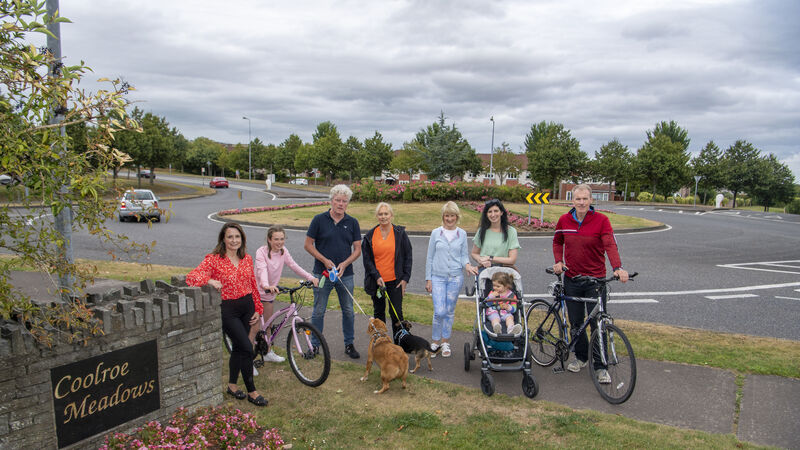Ballincollig residents 'up in arms' at bike lane proposals

Greg Canty, Patricia Downing, Deirdre Waldron, Julieann Delaney, Claire and Lucia O'Brien and Kevin and Ciara Cooper near the roundabout at Coolroe Meadows, Ballincollig, Cork, where residents are objecting to a proposed bike lane plan and the taking away of the roundabout. Picture: Dan Linehan
Local authority engineers have been told to scrap contentious bike lane plans in a Cork suburb and go back to the drawing board.
The message came loud and clear from a public meeting, attended by an estimated 250 people, which was called to discuss Cork City Council’s draft ‘active travel plan’ for the Coolroe and Greenfield estates area of Ballincollig.










